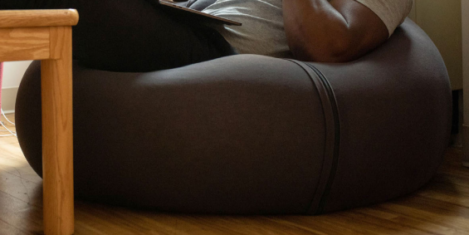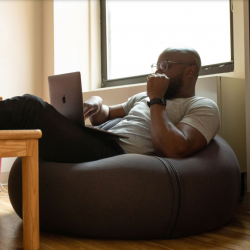To provide the best experiences, we use technologies like cookies to store and/or access device information. Consenting to these technologies will allow us to process data such as browsing behaviour or unique IDs on this site. Not consenting or withdrawing consent, may adversely affect certain features and functions.
The technical storage or access is strictly necessary for the legitimate purpose of enabling the use of a specific service explicitly requested by the subscriber or user, or for the sole purpose of carrying out the transmission of a communication over an electronic communications network.
The technical storage or access is necessary for the legitimate purpose of storing preferences that are not requested by the subscriber or user.
The technical storage or access that is used exclusively for statistical purposes.
The technical storage or access that is used exclusively for anonymous statistical purposes. Without a subpoena, voluntary compliance on the part of your Internet Service Provider, or additional records from a third party, information stored or retrieved for this purpose alone cannot usually be used to identify you.
The technical storage or access is required to create user profiles to send advertising, or to track the user on a website or across several websites for similar marketing purposes.
 UK employers are reporting their strongest employment intentions in a year, the latest CIPD/Adecco Labour Market Outlook claims. The survey’s net employment intentions figure, which measures the difference between the proportion of employers expecting to add jobs and those planning to cut positions, rose to +11 this quarter – its highest in a year. This compares to -1 in the previous quarter. (more…)
UK employers are reporting their strongest employment intentions in a year, the latest CIPD/Adecco Labour Market Outlook claims. The survey’s net employment intentions figure, which measures the difference between the proportion of employers expecting to add jobs and those planning to cut positions, rose to +11 this quarter – its highest in a year. This compares to -1 in the previous quarter. (more…)








 The circular economy is the ‘holy grail’. Few people would deny the ambition of keeping resources in use for as long as possible, extracting the maximum value from them, then recovering and regenerating products and materials at the end of each service life. Is this achievable within the furniture and furnishings sector? Many manufacturers and suppliers can justifiably boast impressive ‘green’ credentials, such as manufacturing techniques, the use of innovative and sustainable materials as well as recyclability of products. The production and supply of new furnishings doesn’t address, however, the short and longer term issues relating to sustainability. ‘Cradle to cradle’ is a great concept – but who is responsible?
The circular economy is the ‘holy grail’. Few people would deny the ambition of keeping resources in use for as long as possible, extracting the maximum value from them, then recovering and regenerating products and materials at the end of each service life. Is this achievable within the furniture and furnishings sector? Many manufacturers and suppliers can justifiably boast impressive ‘green’ credentials, such as manufacturing techniques, the use of innovative and sustainable materials as well as recyclability of products. The production and supply of new furnishings doesn’t address, however, the short and longer term issues relating to sustainability. ‘Cradle to cradle’ is a great concept – but who is responsible? 
 Investment in digital technology is set to increase UK GDP by £232bn (6.9 percent) in 2040, according to a new
Investment in digital technology is set to increase UK GDP by £232bn (6.9 percent) in 2040, according to a new 
 The impact of the nation’s deteriorating mental health from Covid-19 lockdowns and other restrictions cost UK businesses £14bn last year, according to a study by
The impact of the nation’s deteriorating mental health from Covid-19 lockdowns and other restrictions cost UK businesses £14bn last year, according to a study by 
 Working together in person has far-ranging benefits on everything from mental health to economic growth according to a new report by
Working together in person has far-ranging benefits on everything from mental health to economic growth according to a new report by 
 How good your line manager is makes the difference between an employee coping or struggling in lockdown. But too often line managers’ heroic efforts are not noticed by their employers, claims new report, titled
How good your line manager is makes the difference between an employee coping or struggling in lockdown. But too often line managers’ heroic efforts are not noticed by their employers, claims new report, titled 
 Microsoft has announced Microsoft Viva, which it claims is the first employee experience platform to bring tools for employee engagement, learning, wellbeing and knowledge discovery, directly into people’s workflow. Viva is designed to help employees ‘learn, grow and thrive’ in the new era of working life, and is designed to work alongside existing solutions such as Microsoft 365 and Microsoft Teams.
Microsoft has announced Microsoft Viva, which it claims is the first employee experience platform to bring tools for employee engagement, learning, wellbeing and knowledge discovery, directly into people’s workflow. Viva is designed to help employees ‘learn, grow and thrive’ in the new era of working life, and is designed to work alongside existing solutions such as Microsoft 365 and Microsoft Teams. 
 Lockdown meant that the choice to work from home was made for us. However, for many the decision to continue to do so post-lockdown will be a personal choice. The question we should all ask ourselves is, whether when we are outside of any lockdown restrictions, is working from home really a workplace revolution or simply an act of selfishness? For thousands of workers who’ve spent years of their lives commuting to offices that feel more like soul-less factories than inspiring and engaging workplaces, it’s no wonder that enforced work from home has proven popular.
Lockdown meant that the choice to work from home was made for us. However, for many the decision to continue to do so post-lockdown will be a personal choice. The question we should all ask ourselves is, whether when we are outside of any lockdown restrictions, is working from home really a workplace revolution or simply an act of selfishness? For thousands of workers who’ve spent years of their lives commuting to offices that feel more like soul-less factories than inspiring and engaging workplaces, it’s no wonder that enforced work from home has proven popular. 
 Philanthrocapitalism is a term that’s only 15 years old. A modern concept for the modern age. Or is it? In the late 1800s, George Cadbury bought a plot of land five miles south of Birmingham to relocate his factory and expand his chocolate empire. But greater levels of chocolate production weren’t his only concern; he also built an entire village to accommodate the new factory’s workforce. The plan was for this village – called Bournville, which now shares its name with the brand’s famous dark chocolate – to “alleviate the evils of modern, more cramped living conditions”. Port Sunlight, built on the Wirral Peninsula by the Lever Brothers, whose manufacturing company is now part of Unilever, offers up a similar story.
Philanthrocapitalism is a term that’s only 15 years old. A modern concept for the modern age. Or is it? In the late 1800s, George Cadbury bought a plot of land five miles south of Birmingham to relocate his factory and expand his chocolate empire. But greater levels of chocolate production weren’t his only concern; he also built an entire village to accommodate the new factory’s workforce. The plan was for this village – called Bournville, which now shares its name with the brand’s famous dark chocolate – to “alleviate the evils of modern, more cramped living conditions”. Port Sunlight, built on the Wirral Peninsula by the Lever Brothers, whose manufacturing company is now part of Unilever, offers up a similar story. 
 Mass redundancies across the UK are having a huge impact on the discretionary effort employees are willing to undertake on behalf of their employer, according to research from career transition firm
Mass redundancies across the UK are having a huge impact on the discretionary effort employees are willing to undertake on behalf of their employer, according to research from career transition firm 
 As SME leaders plan for the year ahead,
As SME leaders plan for the year ahead, 








February 19, 2021
A new mindset on climate change is emerging from the pandemic
by Aki Stamatis • Comment, Environment